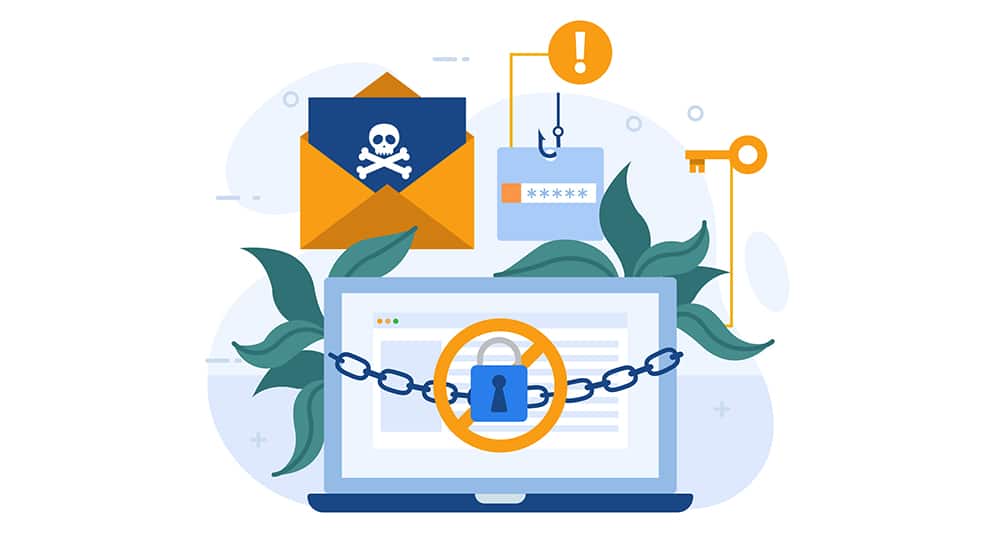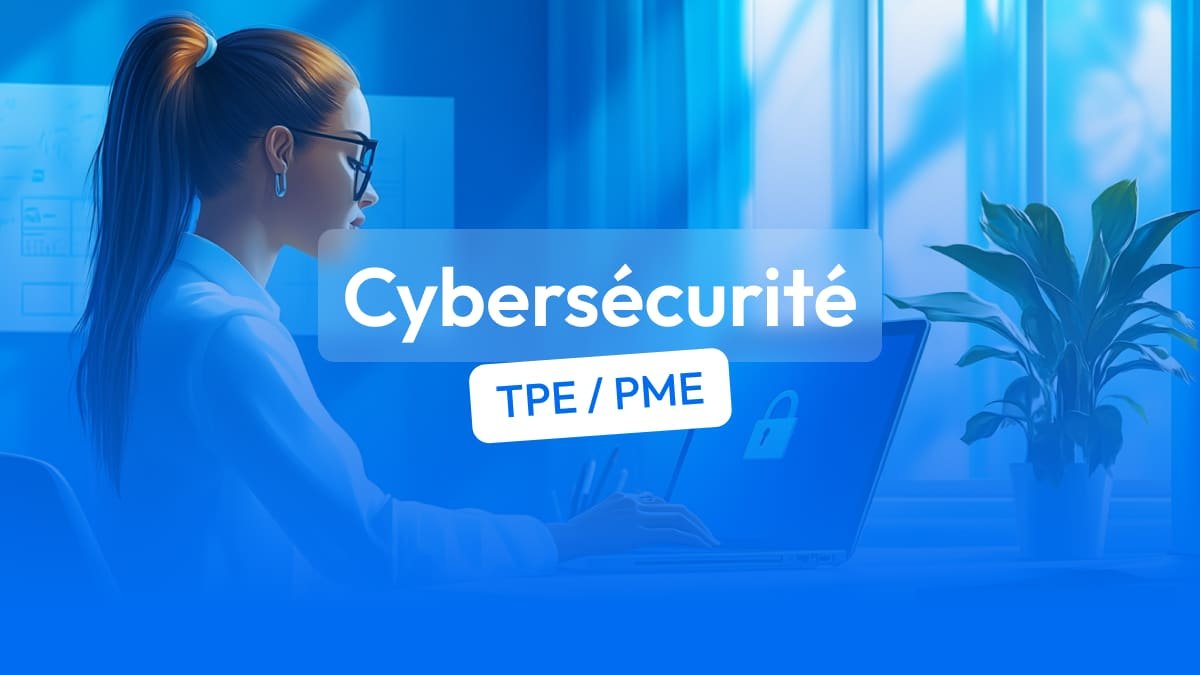43 % of cyber attacks target VSEs and SMEsresulting in average financial losses of € 58,600 per incident. These alarming figures highlight the importance of strengthening cybersecurity of small businesses, often perceived as easy targets by hackers.
This article explores the challenges and risks linked to IT security for limited structures, and offers essential actions to be implemented to protect your business against online threats.
Cybersecurity risks for SMEs and VSEs
Small businesses represent a privileged target for cybercriminals. In 2023, 60 % of small businesses having undergone a cyber attack closed definitively within the following six months. The most frequent types of attacks include phishing, ransomware and data leaks.
Phishing
Phishing consists in deceiving employees so that they reveal sensitive information, often via fraudulent emails or sms. These attacks can lead to considerable data violations and financial losses.
A notable example is that of Tangerine Telecom. In 2023, the company experienced an important data leak after connection identifiers were compromised. An attack that exposed personal information of more than 200,000 customers.
This incident has not only threatened customer data security, but also raised concerns about the protection of privacy. In addition, consumer confidence in the company has eroded.
Ransomware
Ransomware encrypts the company data in order to require a ransom for their return. These attacks generally paralyze operations and cause major financial losses.
In February 2024, the Varta battery manufacturer was struck by a cyber attack that paralyzed production in five of its factories. This example illustrates the vulnerability of industrial infrastructure and the major impact that cybersecurity flaws can have on the continuity of commercial operations. Directly affecting production capacity often generates negative consequences on customer relations and impacts business income.
Data leaks
Data leaks often occur due to inadequate configurations of API systems or interfaces.
In April 2019, Facebook underwent a massive leak, where data of nearly 540 million users were exhibited on Amazon S3 servers, poorly configured by third -party developers.
In 2023, Trello ended up in turmoil because of an erroneous configuration of the public API of the tool. The flaw allowed the unauthorized exposure of sensitive information of 15 million accounts.
More recently, the CNIL opened an investigation following the violation of data from two third -party operators paying in France (Viamedis and Almerys). A cyber attack resulting from bad configurations of systems and a lack of adequate protection measures, which unveiled the personal and medical information of millions of insured.
Essential actions to improve cybersecurity of your VSE / SME


As we have demonstrated previously, the consequences of a cyber attack include the loss of sensitive data, prolonged activity interruptions and high cleaning costs.
Protecting sensitive information from your customers and employees is therefore essential to ensure the continuity of activities and strengthen the company's reputation.
Here are the main good practices to adopt to improve the cybersecurity of your VSE / SME:
Awareness and train staff
Training employees in good safety practices is a priority. Regular awareness programs help prevent threats such as phishing and malware. Workshops and training sessions make employees aware of the risks and measures to be taken to protect themselves and protect the company.
A cybersecurity consultant can intervene in your business to educate your teams.
Update software and systems regularly
Regular software and systems updates fill in vulnerabilities and prevent the exploitation of faults. Automate updates, use a firewall and install modern antivirus software reinforce protection and minimize risks.
Use strong passwords
Robust and unique passwords for each account are essential to improve the cybersecurity of your TPE / SME. Use password managers help create and manage these complex identifiers. In addition, a regular change (every 30 to 90 days, for example) passwords reinforces the fight against hacking.
Activate two -factor authentication
Furthermore, remember to activate thetwo -factor authentication (2FA) to add an additional safety layer. This good practice makes unauthorized access more difficult for your network infrastructure, your internal applications and tools.
Regularly back up your data
Regular data backups allow rapid recovery after a possible cyber attack. It is recommended to make frequent backups and diversify storage solutions (cloud and local) to make sure that critical data is protected and recoverable in the event of a claim.
Secure Wi-Fi networks
Use complex passwords for Wi-Fi networks and regularly change access reinforce protection against cyber attacks. On the encryption side, prefer WPA3 which offers advanced protection against intrusions.
If your business welcomes the public, you can also segment the networks, by creating, for example, a divided network distinct from internal Wi-Fi.
Actively monitor intrusions
Active monitoring of networks and systems makes it possible to quickly detect abnormal behavior and hacking attempts. It is advisable to use intrusions detection systems (IDS), often more reactive and effective than simple antivirus, to alert administrators in the event of suspicious activity.
Set up security policies
Clear and well -defined security policies supervise the behavior of employees and prevent security vulnerabilities. These regulations may include the prohibition of personal devices, access to sensitive data and protocols to follow in the event of a security incident.
Effectively communicate this policy via internal emails, but also by displaying it in each office and in the open-space.
Our latest advice to improve cybersecurity of your SME or TPE
Improving cybersecurity of your VSE / SME is an essential investment to protect your business. By implementing the recommended actions in this article and remaining vigilant, you can significantly reduce the risks.
One last advice: call on a cybersecurity consultant on our freelance,, Coder.com. It will help you identify the specific vulnerabilities of your business and put in place efficient measures to correct them.
